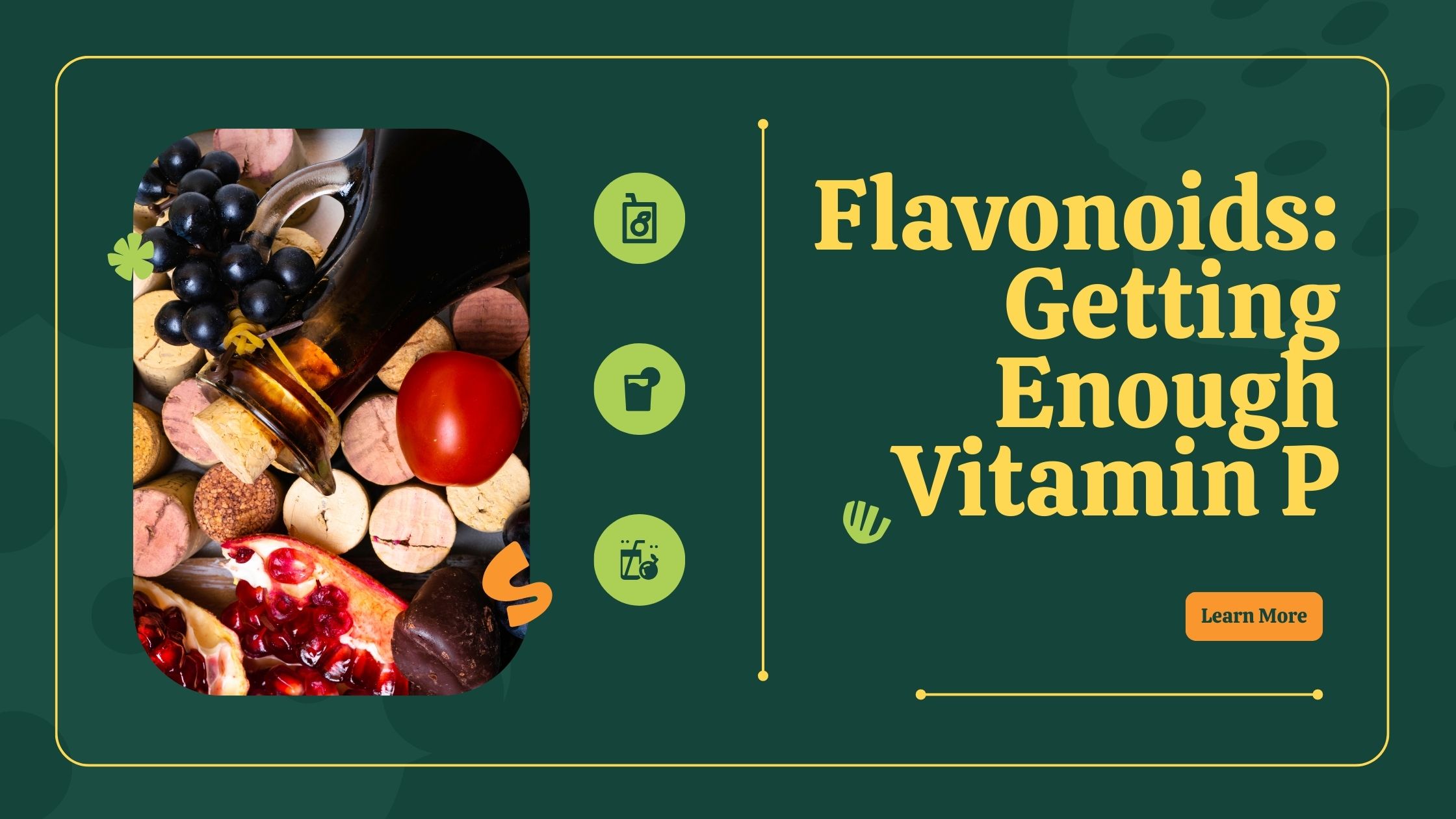
Flavonoids, commonly referred to as Vitamin P, are a diverse group of phytonutrients found in plants, known for their vibrant colors and potent health benefits. These compounds are not only responsible for the bright hues of many fruits and vegetables but also play a crucial role in maintaining and enhancing our health.
What Are Flavonoids?
Flavonoids are a class of polyphenolic compounds found naturally in many plants. They are known for their antioxidant properties and their ability to combat oxidative stress. Structurally, most flavonoids contain ketones, which are vital for various bodily functions.
The Role of Ketones
Ketones are essential for brain function and metabolic efficiency. They help prevent neurological diseases such as Alzheimer’s by providing an alternative energy source for the brain. When the body uses ketones as a primary energy source, especially in a diet rich in fruits and vegetables, both the brain and heart function more efficiently.
Benefits of Flavonoids
Flavonoids offer a multitude of health benefits, making them a crucial part of a balanced diet. Here are some of the key advantages:
- Anti-Allergic Effects: Flavonoids can help reduce allergic reactions by stabilizing mast cells and preventing the release of histamines.
- Anti-Inflammatory Effects: As powerful antioxidants, flavonoids reduce inflammation by neutralizing free radicals.
- Anti-Cancer Properties: Flavonoids can induce the death of mutagenic and carcinogenic cells, thereby reducing the risk of cancer.
- Cardiovascular Health: These compounds help lower the risk of heart disease by improving blood vessel function and reducing blood pressure.
- Bactericidal Properties: Flavonoids have been shown to have antibacterial effects, helping to combat various infections.
Sources of Flavonoids
To ensure you are getting enough flavonoids, incorporate the following foods into your diet:
- Fruits: Citrus fruits like oranges, lemons, and grapefruits are particularly rich in flavonoids.
- Vegetables: Many veggies, including onions, kale, and broccoli, are excellent sources.
- Tea: Both green and black teas are high in flavonoids.
- Soy: Soy products contain significant amounts of these beneficial compounds.
- Red Wine: In moderation, red wine can be a good source of flavonoids.
- Hops: Found in beer, hops also contain these phytonutrients.
Consumption Tips
While flavonoids are abundant in many foods, it's important to consume them wisely. Here are some tips to maximize their benefits:
- Moderation with Soy and Alcohol: Be sparing with soy, wine, and hops-filled beer as excessive consumption may have adverse health effects.
- Cooking Vegetables: In some cases, cooking vegetables can enhance the release and absorption of flavonoids.
- Supplementation: If you decide to take supplements, choose products that prioritize bioavailability. Many mass-market flavonoid supplements have low absorption rates, meaning they pass through the gut without being utilized effectively.
The Science Behind Flavonoids
Research has shown that flavonoids can significantly impact health. Studies indicate that diets rich in flavonoids are associated with a reduced risk of chronic diseases, including heart disease, diabetes, and certain cancers. The antioxidant properties of flavonoids help protect cells from oxidative damage, which is a key factor in the aging process and the development of many diseases.
Key Takeaways
- Incorporate Flavonoid-Rich Foods: Include a variety of fruits, vegetables, teas, and moderate amounts of soy and red wine in your diet.
- Consider Bioavailability: When choosing supplements, opt for those with high bioavailability to ensure your body absorbs and uses the nutrients effectively.
- Balance and Moderation: Be mindful of your overall diet and lifestyle to maximize the health benefits of flavonoids.
Flavonoids are a powerful addition to any diet, offering numerous health benefits and playing a crucial role in disease prevention and overall wellness. By making informed choices about your diet and supplements, you can ensure you are reaping the full benefits of these incredible phytonutrients.




.jpg)



